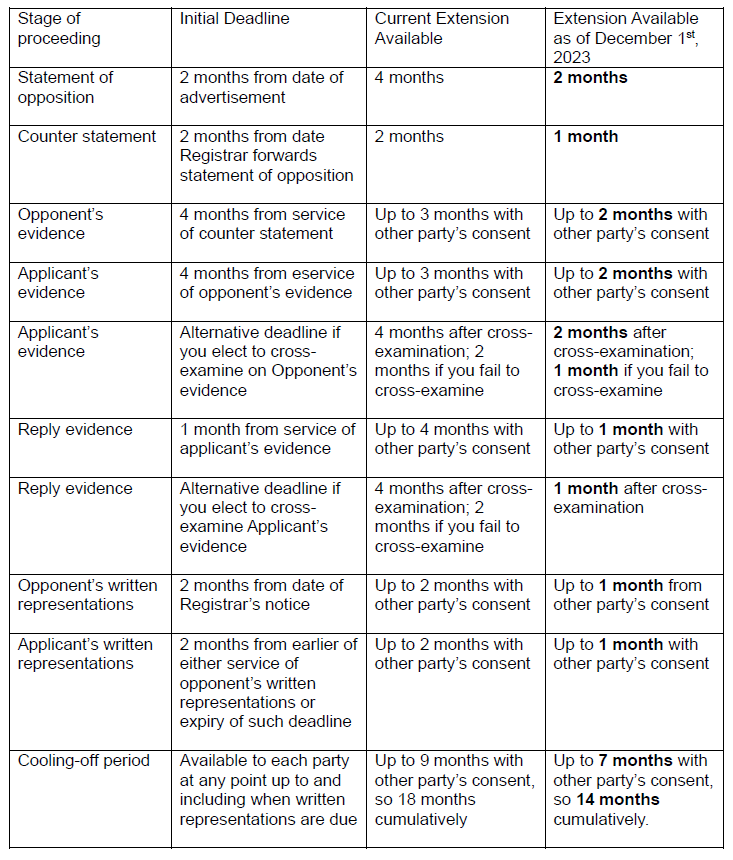Recently the Canadian Trademarks Office announced that extensions of time available in Oppositions and Section 45 (non-use cancellation) proceedings will be significantly reduced as of December 1st. In this article, we look at the scope and
impact of some of these changes and provide guidance on steps brand owners can take now, to benefit from longer time extensions.
What has the Canadian Trademarks Office changed?
The reductions to time extensions range from 20% to 75% at different stages of the proceedings and the changes vary for Oppositions and Section 45 proceedings. The changes come into effect on December 1st, 2023.
What do brand owners need to know?
With the introduction of these changes to the length of time extensions, brand owners will have to act more quickly at all stages of Section 45 and Opposition proceedings.
Section 45 proceedings:
Registrants subject to a Section 45 proceeding should be aware that the extension of time available to file evidence has been reduced by 50%, from four months to two months.
Oppositions:
Extensions of time available during Oppositions have also been significantly shortened.
For example, currently an opponent can obtain a three-month extension to file evidence. After the changes, only a two-month extension will be available.
Importantly, these changes also reduce the “cooling-off” period available to parties engaged in settlement discussions. Currently, each party can request up to a nine-month cooling-off period at any point if the other party consents. The new
changes reduce this extension period to seven months.
A more exhaustive list of the changes to time extensions available at all stages of Opposition proceedings is outlined in the chart below:

What should brand owners do before December 1st, 2023?
Any time extension requests filed before December 1st, 2023 will be handled under the current practice. Accordingly, brand owners that are subject to an Opposition or Section 45 proceeding and are interested in longer extensions of time should ensure that any such requests are filed prior to December 1st, 2023.
If you have any questions or would like further information, please contact a member of our Trademarks and Brand Protection team.
The preceding is intended as a timely update on Canadian intellectual property and technology law. The content is informational only and does not constitute legal or professional advice. To obtain such advice, please communicate with our offices directly.
Related Publications & Articles
-
Federal Court confirms test for leave to file new evidence in appeal from Opposition Board Decision
As of April 1, 2025, subsection 56(5) of the Trademarks Act requires parties to obtain leave to file additional evidence on appeal from decisions of the Registrar of Trademarks (the “Registrar”), whic...Read More -
Top five 2025 trends in Canadian copyright law
2025 saw incremental developments in Canadian copyright matters anticipated to set the foundation for potentially major changes in the coming years in AI and accessible remedies for infringement and h...Read More -
Patenting AI: Shift the focus to do it better
Patent protection is pursued for all types of technologies. Why should anything be different just because the technology is based on artificial intelligence (AI)? Nothing is different when reduced to...Read More
